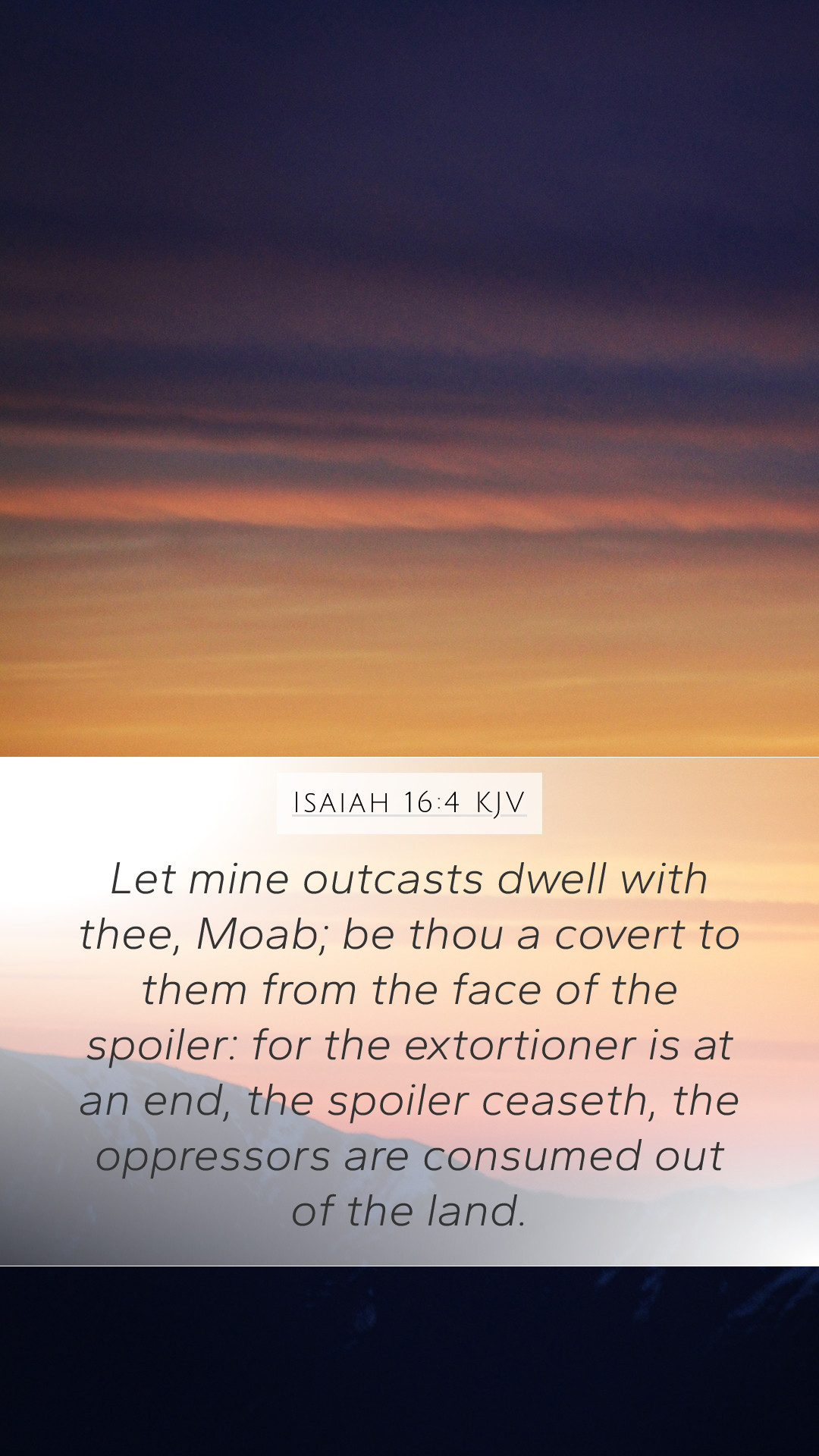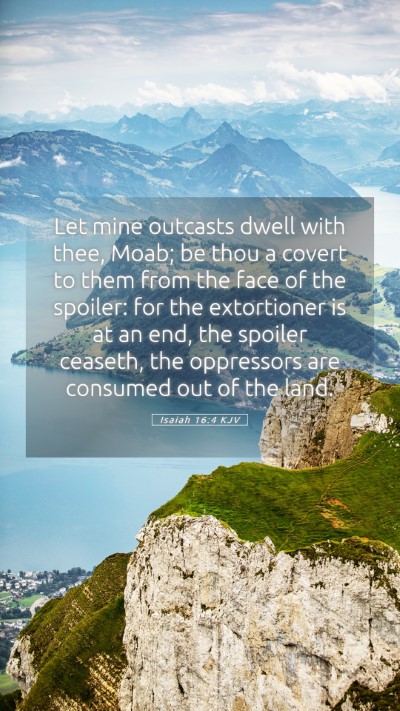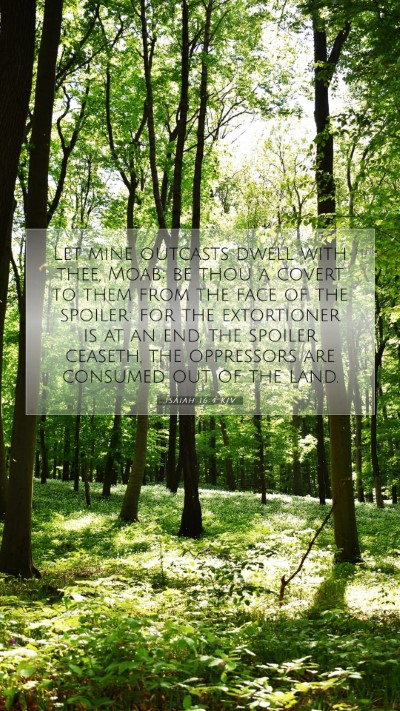Understanding Isaiah 16:4
Isaiah 16:4 is a verse rich in context and meaning, and it invites deep theological reflection. In this commentary, we'll explore various interpretations and insights from the works of Matthew Henry, Albert Barnes, and Adam Clarke. This exposition aims to provide a clearer understanding of this scripture for those engaging in Bible study, allowing them to delve into its nuances and applications in daily life.
Verse Text
"Let my outcasts dwell with thee, Moab; be thou a covert to them from the face of the spoiler: for the extortioner is at an end, the spoiler ceaseth, the oppressors are consumed out of the land." (Isaiah 16:4, KJV)
Context of Isaiah 16
Isaiah 16 deals with a prophecy concerning Moab, an ancient kingdom neighboring Israel. The context reveals the turmoil faced by Israel and the surrounding nations, leading to a cry for refuge and support from Moab, illustrating the extent of judgment and the need for redemption.
Key Themes Explored
- Your Refuge: The plea for refuge indicates vulnerability and represents a longing for protection amidst chaos.
- God's Justice: The themes of justice and relief from oppression run throughout this passage, emphasizing divine intervention in times of trial.
- Community and Acceptance: The call for Moab to accept the outcasts underscores the importance of compassion and solidarity among nations.
Biblical Commentary Insight
Matthew Henry's Perspective
Matthew Henry highlights that this verse captures a plea for mercy amidst desolation. He notes that the outcasts symbolize those who have been marginalized and points out the significance of divine grace in providing sanctuary for the needy. This fosters an understanding that, despite turmoil, God offers hope through community support.
Albert Barnes' Commentary
Albert Barnes emphasizes the characteristics of Moab as a place of refuge. He interprets Moab’s response as not merely physical but spiritual, suggesting that in times of distress, individuals often seek solace and hope in unexpected places. His analysis invites readers to consider how their own lives can serve as sanctuaries for others.
Adam Clarke's Explanation
Adam Clarke elaborates on the prophetic implications regarding the oppressors being consumed. He affirms the transformative power of God’s justice in delivering those who suffer under oppression. Clarke’s interpretation serves as a powerful reminder of the ultimate triumph of divine justice.
Application of Isaiah 16:4
This verse invites believers to reflect on their roles within their communities. How can you be a refuge to those in need? The call to provide support and safety mirrors the heart of Christian compassion and service.
Practical Applications
- Offering Shelter: Find ways to support refugees and those afflicted by societal injustices.
- Promoting Justice: Engage in advocacy for the oppressed within your community.
- Building Community: Foster environments of acceptance and love, where outcasts feel welcomed.
Related Bible Cross References
- Psalm 61:3: "For thou hast been a shelter for me, and a strong tower from the enemy."
- Matthew 25:35: "For I was an hungred, and ye gave me meat: I was thirsty, and ye gave me drink: I was a stranger, and ye took me in."
- Proverbs 14:31: "He that oppresseth the poor reproacheth his Maker: but he that honoreth him hath mercy on the poor."
Conclusion
The exploration of Isaiah 16:4 highlights the complexities of divine justice, refuge, and community responsibility. As we engage in Bible study insights and biblical exegesis, may we find ways to embody the grace and protection that God extends, embodying His love in our communities.


